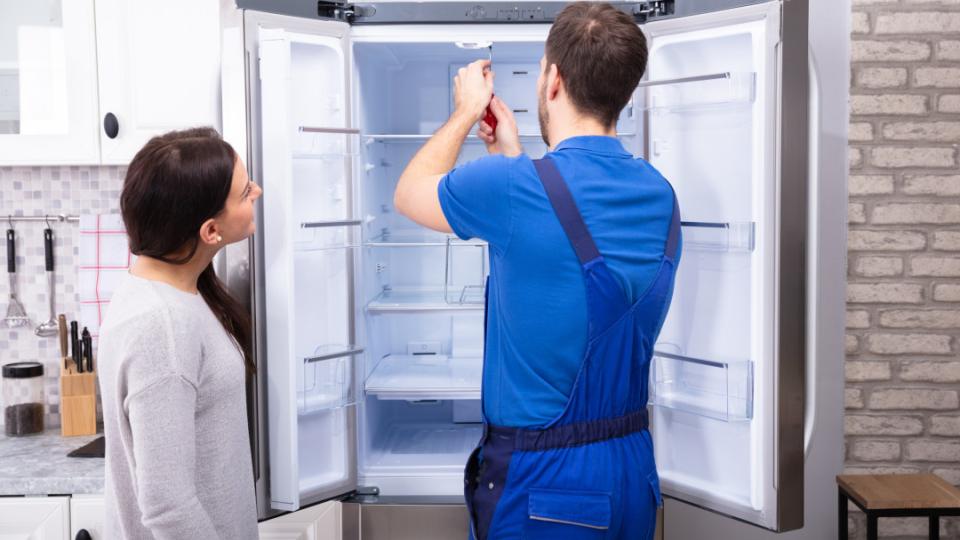How to decide to repair or replace your appliances?
When one of your appliances breaks down, you're faced with a common dilemma: should you repair it or replace it? It can be a tough decision to make, as there are several factors to consider. In this article, we will explore the key factors to consider when deciding between repairing or replacing your appliances.
Cost of Repair
One of the most important factors to consider is the cost of repair. Evaluate the cost of repairing the appliance compared to the cost of replacing it. Sometimes, the cost of repairing an older appliance can be quite high, especially if it requires expensive parts or specialized labor. In such cases, it might be more cost-effective to replace the appliance altogether.
Age of the Appliance
The age of the appliance is another crucial factor to take into account. Older appliances are more prone to breakdowns and have a higher likelihood of developing additional issues in the future. If your appliance is nearing the end of its expected lifespan, it might be wiser to invest in a new one rather than pouring money into repairs.
Frequency of Repairs
If you find yourself frequently repairing an appliance, it may be a sign that it's time to replace it. Constant breakdowns and the need for repeated repairs can lead to frustration and inconvenience. Additionally, frequent repairs can accumulate significant costs over time. Consider the frequency of repairs and weigh it against the benefits of investing in a new, reliable appliance.
Energy Efficiency
Energy efficiency is an essential consideration when deciding whether to repair or replace an appliance. Older appliances tend to be less energy-efficient compared to newer models. By upgrading to a newer appliance, you can potentially save a significant amount on your energy bills in the long run. Take into account the energy efficiency of your current appliance and compare it to the potential savings with a new one.
Availability of Parts
In some cases, the decision to repair or replace may hinge on the availability of parts. If your appliance is old or rare, finding the necessary parts for repair may pose a challenge. You may have to wait for extended periods to get the required parts, which can prolong the disruption caused by the appliance's malfunction. Consider the availability of parts and factor it into your decision-making process.
Overall Condition of the Appliance
Assessing the overall condition of an appliance can help determine whether repair is feasible and sustainable. Consider factors such as the condition of the interior components, the functionality of key features, and the general wear and tear. If your appliance is in poor condition overall, it may be more practical to replace it with a newer, more reliable model.
Lifestyle and Needs
Your lifestyle and specific needs should also play a role in the decision-making process. Consider how the appliance fits into your daily life and if any upgrades or additional features would enhance your experience. If the appliance no longer meets your needs or if upgraded features are essential to you, replacing it might be the better option.
Resale Value
For some homeowners, the potential resale value of an appliance is an important consideration. If you plan to sell your home in the near future, having newer, well-maintained appliances can increase its overall value. Conversely, outdated and malfunctioning appliances can be a deterrent to potential buyers. Evaluate the potential impact on your home's resale value when making your decision.
Environmental Impact
Finally, consider the environmental impact of your decision. Repairs can reduce waste by extending the lifespan of an appliance, while replacing an old appliance may lead to the disposal of a still-functional unit. Evaluate the energy consumption, manufacturing processes, and waste generated by both repair and replacement options. Make an environmentally conscious choice that aligns with your values.
Ultimately, the decision to repair or replace your appliances depends on a combination of these factors. Consider the cost, age, frequency of repairs, energy efficiency, availability of parts, overall condition, lifestyle and needs, resale value, and environmental impact. By carefully weighing these considerations, you can make an informed decision that best suits your situation and preferences.
Remember, if you are unsure about the best course of action, it's always advisable to consult a professional appliance repair service or seek trusted consumer research on TrustDALE.com to help find appliance repair professionals in your area.

